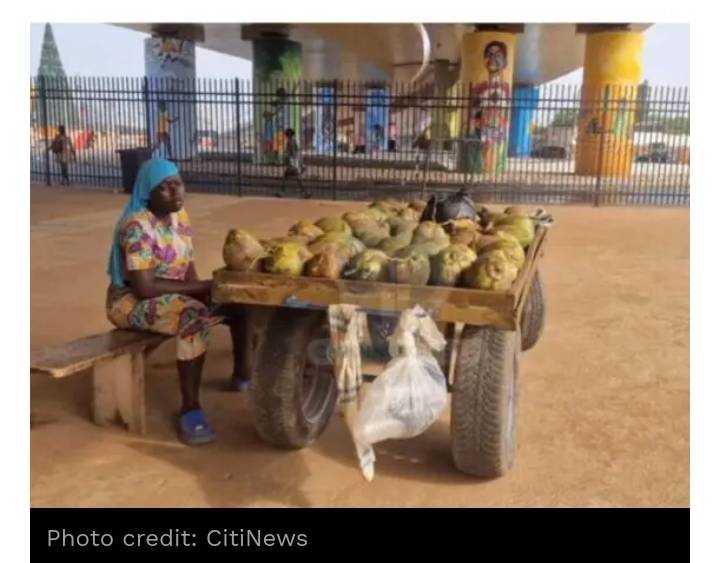The recently inaugurated Flower Pot Interchange in Accra has significantly reduced traffic congestion along the Spintex Road, improving access to areas like Tema, East Legon, Teshie, and Cantonments. However, the project has introduced a new challenge: managing informal traders who have long operated along the route.
Just 24 hours after the interchange was commissioned, a trader selling coconuts on the median sparked widespread discussions across traditional and social media. In response, Greater Accra Regional Minister Titus Glover took swift and decisive action to address the situation.
Minister’s Intervention
During an unannounced visit to the scene, the minister demolished a makeshift table used by the coconut vendor and confiscated the items. This bold move was aimed at deterring hawkers from operating at the interchange, which he believes should remain a symbol of urban order and progress.
Speaking to JoyNews, Mr. Glover expressed his frustration, stating, "I was on my way to Dodowa when I received calls and pictures showing a woman selling coconuts on a truck under the interchange. I rushed there and personally dismantled the setup. This area must not become cluttered with kiosks or containers that ruin the beauty of this infrastructure.â€
The minister also directed the municipal assembly to deploy security personnel to monitor the area and prevent further encroachment.
Public Reactions
The minister's actions have drawn mixed reactions from the public. Some have lauded his firm stance, emphasizing the need to maintain order and preserve the aesthetic and functional value of the interchange. Others, however, criticized the perceived harshness of his approach, arguing that a more humane solution could have been sought.
Nearby food vendors have expressed their concerns, vowing to resist forced evictions unless alternative locations are provided for their businesses. "We are not against development, but we need designated places to continue our livelihoods," one vendor stated.
Balancing Development and Livelihoods
The Flower Pot Interchange, celebrated as a major infrastructural achievement, has inadvertently become a flashpoint for broader debates on urban planning, governance, and the informal economy. While the minister's actions highlight the government’s commitment to enforcing urban order, they also underscore the complex relationship between development and livelihoods.
Experts in urban planning have weighed in, emphasizing the need for inclusive policies that balance the need for orderly cities with the economic realities of informal traders. “This is a recurring issue in many cities. Development projects must consider designated areas for informal businesses to operate without undermining the infrastructure’s purpose,†one analyst noted.
The Way Forward
The Flower Pot Interchange has undoubtedly enhanced connectivity and eased traffic. However, its success will ultimately depend on how well authorities manage the unintended challenges it brings. A collaborative approach involving government officials, urban planners, and the affected traders may provide sustainable solutions that uphold the infrastructure’s benefits while supporting livelihoods.
As the Greater Accra region continues to pursue modernization, balancing aesthetics, functionality, and economic inclusion will remain a critical task for policymakers.
Source: Myjoyonline.com




No comments yet
Be the first to share your thoughts!